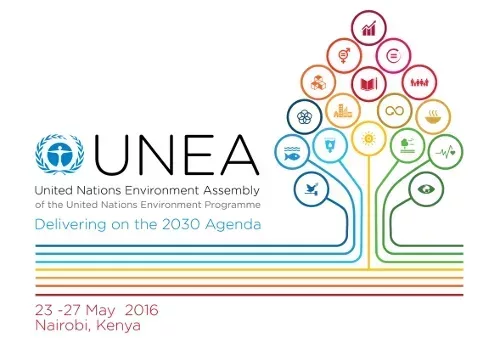The future of coral reefs is determined by choices made now. Adoption of the 2030 development agenda and Sustainable Development Goals provides an opportunity to change the course for coral reefs and dependent people. By providing a holistic and comprehensive programme that cuts across the three dimensions of sustainable development, and by committing all countries to delivering all the Goals, the barriers to sustainable coral reef management have been lowered. However, two thirds of coral reefs in the world are under immediate and direct threat from human activities, and all reefs are increasingly threatened by climate change. Greenhouse gas emissions need to peak as soon as possible and then decrease rapidly, but even if mitigation targets in the Paris Agreement are met most coral reefs will face repeated, severe bleaching in the coming decades.
Actions towards achieving the SDGs need to take into account the vulnerability of coral reefs in order to ensure development takes place within safe limits. Pursuing SDG 14 in particular requires greater consideration of the economic, social and environmental value of coral reefs – about half a billion people draw direct benefits from them. It requires strategic prioritization of governance and management responses so as to protect coral reef ecosystem functionality and service provision, promote resilience in the face of climate change, and enhance prospects for adaptation. And it requires tracking of progress, in terms of pressure reduction as well as in terms of ecosystem state and service provision. Coral reefs occur in over 100 countries worldwide, including most SIDS and many LDCs. As such they constitute not only a global conservation priority, but also a potential indicator system for development and environmental protection targets.
A Coral Reef event entitled “Coral Reefs in the 2030 Development Agenda: Safeguarding the health and resilience of half a billion reef dependent people” will be organised during the second session of the United Nations Environment Assembly (UNEA-2) by Indonesia and UNEP. It will be held on Tuesday 24 May 2016 from 13:00 to 14:30 in conference room 11.
This side event provides a forum for raising awareness of the economic, social and environmental importance of coral reefs; exchanging views on governance and policy priorities for coral reefs; and generating information that may be considered in the formulation of UNEA-2 resolutions.
Invited speakers and panelists
- Minister of Marine Affairs and Fisheries of the Republic of Indonesia, H.E. Susi Pudjiastuti
- Minister of Climate and Environment of the Kingdom of Norway, H.E. Mr. Vidar Helgesen
- Minister of Natural Resources, Environment and Tourism of the Republic of Palau, H.E. Mr. Umiich Sengeabu
- Minister of Environment and Energy of the Republic of Maldives, H.E. Mr. Thoriq Ibrahim
- Ambassador for the Environment, Ministry of Foreign Affairs of the French Republic, H.E. Mr. Xavier Sticker
- Dr. Ruth Gates, President of the International Society for Reef Studies and Research Professor at the Hawaii Institute of Marine Biology
Draft Agenda
- Opening
- Keynote addresses:
- “Coral reefs in the 2030 development agenda” by Hon. Ms. Susi Pudjiastuti, Minister of Marine and Fisheries Affairs of Indonesia
- “Reefs now and in the future” by Dr. Ruth Gates, President of the International Society for Reef Studies
- Statements by panelists
- Roundtable discussion, including questions from the floor
- Brief summary by Chair
- Closing
Focal Points
Ms. Carolina Tinangon
Deputy Director for Environmental Affairs
Directorate Development, Economic and Environmental Affairs
Directorate General of Multilateral Affairs
Ministry of Foreign Affairs of the Republic of Indonesia
email: [email protected]; [email protected]
Mr. Jerker Tamelander
Head, Coral Reef Unit, United Nations Environment Programme
Email: [email protected]
